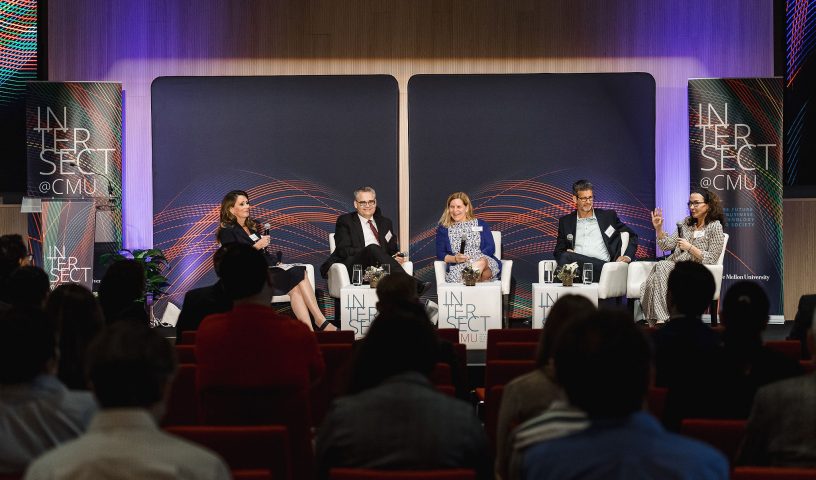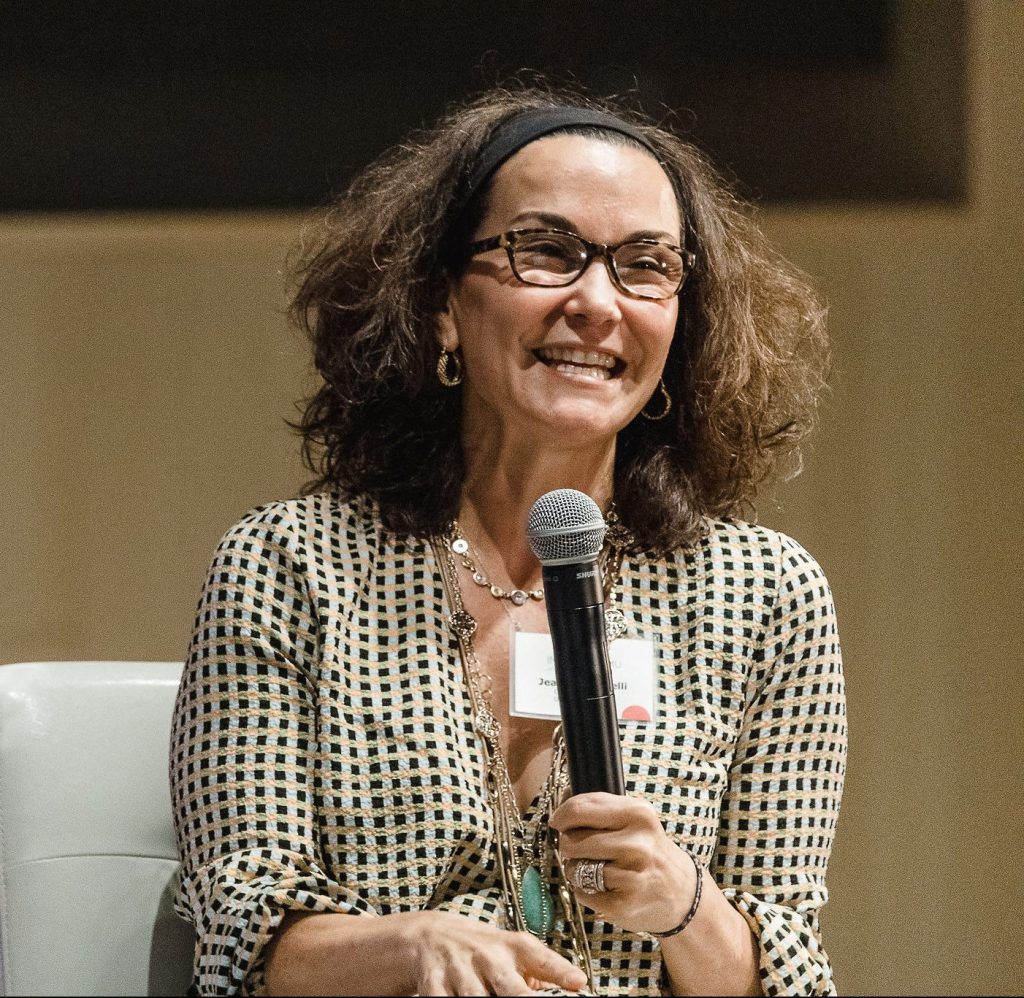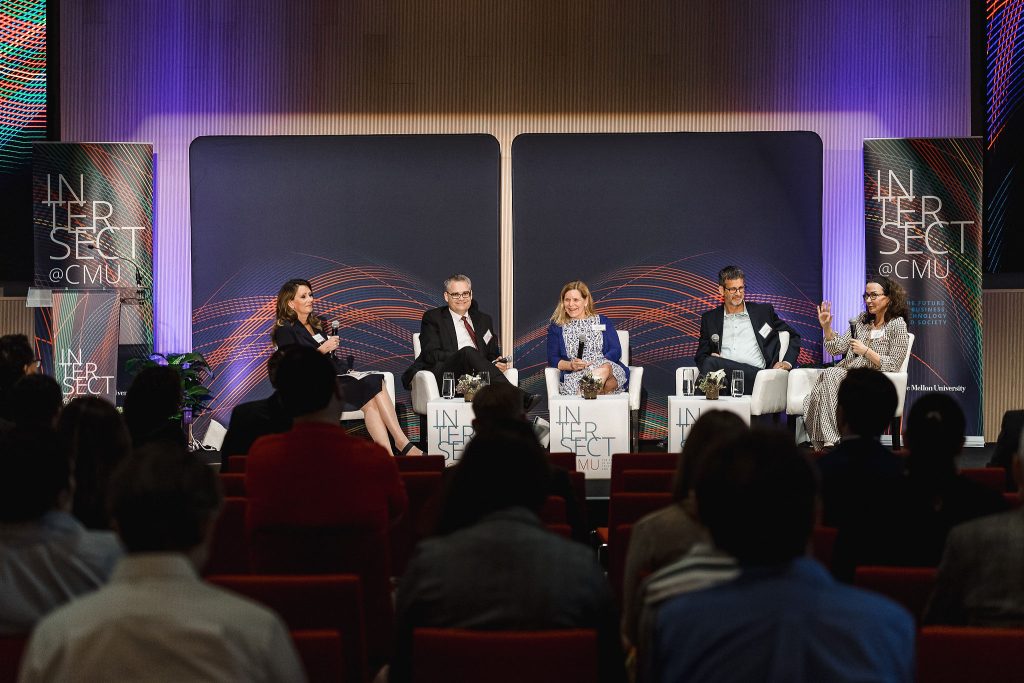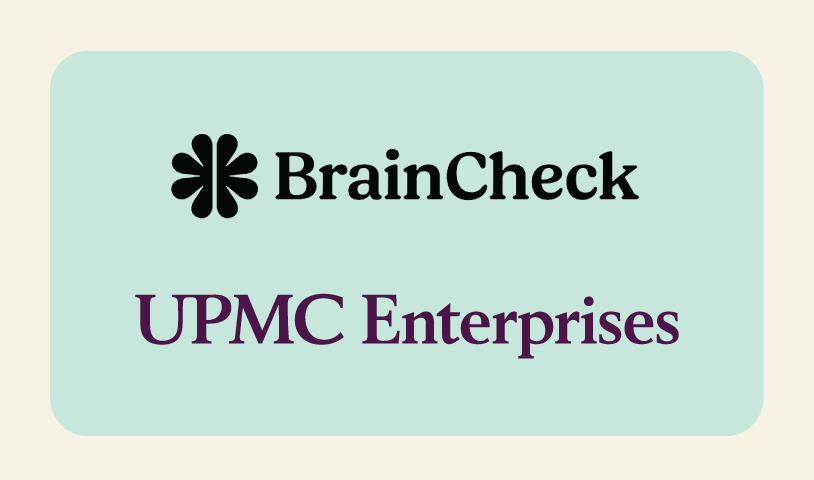
Sep 24, 2019
INTERSECT@CMU hosts ‘Science or Science Fiction’ panel featuring Jeanne Cunicelli
What will medicine and health care look like in the future? A panel of academics and experts debated some of the possibilities during the second annual Intersect@CMU event, held September 13 at Carnegie Mellon University.
The discussion, titled “Science or Science Fiction,” touched on a range of topics and, perhaps unsurprisingly given the venue, tended to focus on the role of technology in advancing health care.

Jeanne Cunicelli, executive vice president of UPMC Enterprises and a CMU alumna, answered a question about how physical spaces in health care may evolve by explaining that the traditional visit to the doctor office may become less important as technology enables access to care.
While patients will continue to see their primary care physicians on a regular basis, it’s likely that consultations with specialists will increasingly occur via telemedicine, according to Cunicelli. Telemedicine is an important technology for expanding access to care and can lead to lower costs.
“The more we expand access through such technologies, the better off we’ll all be,” Cunicelli said.
In addition to Cunicelli, who leads the Translational Sciences focus area at Enterprises, the panel included Keith Elliot Cook, Professor and Associate Department Head for Graduate Education in CMU’s Biomedical Engineering Department; Barbara Shinn-Cunningham, Director of CMU’s Neuroscience Institute; and Steve Downs, Chief Technology and Strategy Officer at the Robert Wood Johnson Foundation. The panel was moderated by Kristen Kurland, CMU Teaching Professor.

Part of Cunicelli’s work is to collaborate with the UPMC Immune Transplant and Therapy Center, which is exploring the potential of immunotherapy to treat cancer, chronic diseases, aging, and transplantation. In some cases, the goal is to suppress a patient’s immune response such as with an organ transplant versus in other instances the goal is to boost the immune response as is the case in cancer treatment.
During the panel discussion, Cunicelli asked Cook, who works on developing bio-engineered organs, if there he thought there will come a time when immune suppressants would no longer be needed.
“There’s the promise and then there’s the practical,” Cook said. He went on to explain that growing or creating new organs tailored to individuals, which could eliminate the need for immune suppression, “may be feasible but it’s very expensive and very time-consuming.”
Instead, a more realistic first approach, according to Cook, would be to bio-engineer a range of replacement organs that could be matched to classes of patients.
The discussion about replacing organs and taking other extraordinary steps to cure disease led into further conversation about whether health care was too focused on fixing sick people and if instead clinicians, researchers, and others should be working harder to keep people healthy.
Cunicelli agreed that more should be done to be proactive in health care and to promote wellness. However, she contended, the practical reality is there are many very sick people already who we cannot abandon. The medical industry has a responsibility to provide care for them.
“We must be realistic about how we get to that nirvana state, all the while balancing the incremental responsive approaches with the more proactive, healthy life span grand vision”
Cunicelli said.


